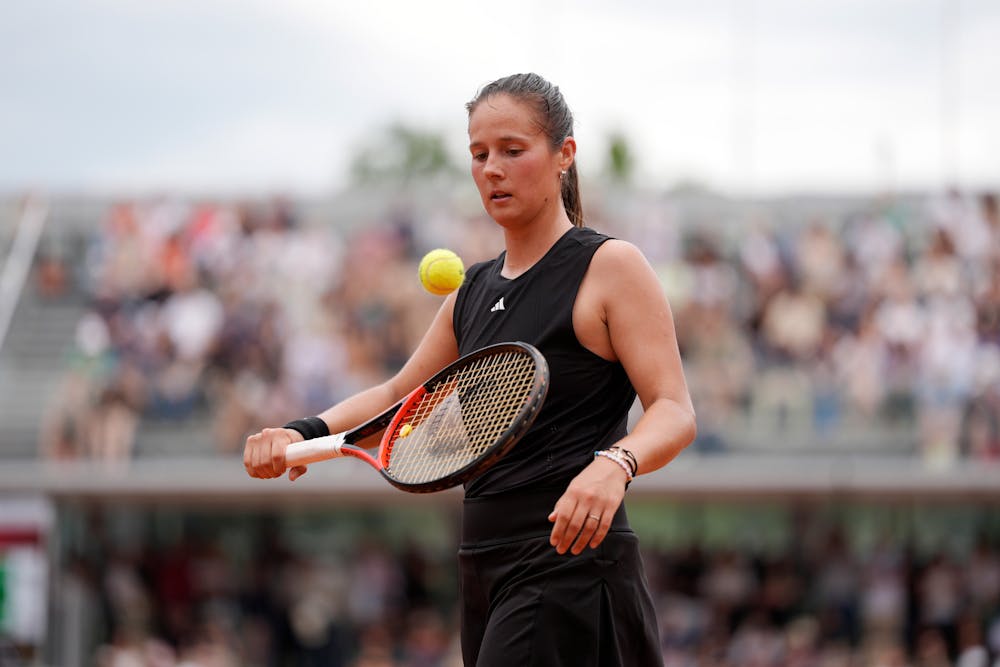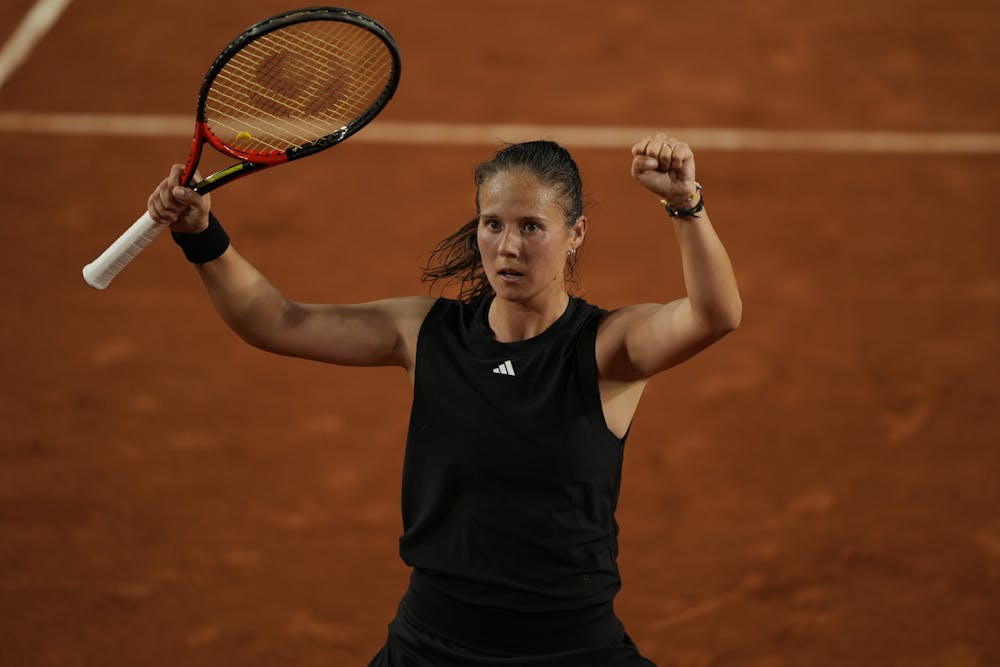After Daria Kasatkina sealed a 6-1, 7-5 victory over No.10 seed Paula Badosa in the third round of Roland-Garros – her first Top 10 victory in nearly a year – the No.17 seed pumped both fists and raised her arms above her head in an ardent display of triumph. It was a pointed reaction for a result that Kasatkina has been used to since she first broke through on the WTA Tour a decade ago.
Kasatkina: Peaking at the right time
Daria Kasatkina is playing with a new freedom here in Paris
 ©Nicolas Gouhier / FFT
©Nicolas Gouhier / FFTBut this year in Paris, it was special.
“It means a lot, especially now because [the] last couple of weeks were a bit rough for me. I couldn't find myself on court. I felt a little bit flat, like with emotions and stuff,” the 2022 Roland-Garros semi-finalist said. “Just I would say felt little signs of burnout or something like that. I'm really happy that I got back on track here in Roland-Garros, one of my favorite tournaments.
“[I’m] playing much better. Feeling much better on court. I think that's the most important, and getting these wins, it's super important to me, especially now.”
At Roland-Garros, the former Top 10 player finds herself peaking at the right time: literally, in the context of finding her best tennis at one of the sport’s most prestigious events, and figuratively, in the context of the most recent chapters of her off-court story. Her 2025 season so far has seen more downs than ups on the court – she entered Roland-Garros with an 11-12 win-loss record this season – and in the weeks leading up to the second Grand Slam of the year the 28-year-old announced that she would be changing sporting nationalities to Australia, a place that is “incredibly welcoming and … where I feel totally at home.”
 ©Nicolas Gouhier / FFT
©Nicolas Gouhier / FFTIt has put a different kind of pressure on Kasatkina’s shoulders, she notes. But one she’s happy to have, as it comes with the ability to live her truth, speak her mind, and love her partner (former Olympic figure skater Natalia Zabiiako) openly and freely.
“I think it's important to stay always positive because it's very easy to get on the wrong track to go downhill when you are losing a couple of matches and then you feel that you are so bad and stuff,” she said. “This is very easy to get in the hole and very difficult to get out of it. So I think it's important to always stay on this right path and work hard.”
“Stepping on court, it's not just a tennis battle; it's also the battle with your thoughts, with what's going on in your life,” she added. “Of course, changing the flag now, I want to be better, I want to bring success being an Australian. I think that's a little bit of pressure, but I think it's good. It's also a motivation.”
 ©André Ferreira / FFT
©André Ferreira / FFTKasatkina last won three consecutive matches at the Australian Open in January, and will go for four in a row – something she last did in Ningbo, China in the autumn en-route to winning her eighth career WTA singles title – against No.6 seed Mirra Andreeva in the Round of 16 on Monday. Despite 10-plus years between the two in age, Kasatkina says she and Andreeva have struck up a friendship (and the teenager is a frequent guest on Kasatkina and Zabiiako’s vlog channel that chronicles life on tour), though she affirms that the 18-year-old doesn’t need to learn anything from her.
“The only thing I'm helping her is to get on the vlog,” she quipped.
Many might scoff at Kasatkina’s modesty, saying that she has a lot to teach not just her fellow players, but us all, about courage and fortitude. And even if she goes no further this fortnight in Paris, there’s all the reason in the world to believe that the next chapter of her life, on and off the court, will be even brighter than what’s come before.
“I just feel free with the wings,” she said. “The main thing is that I can live my life now freely and happy. With that, the tennis will come. That's the most important.”
 ROLAND-GARROS
19 May - 8 June 2025
ROLAND-GARROS
19 May - 8 June 2025

